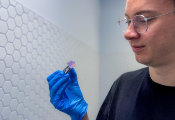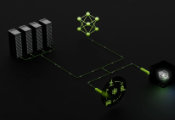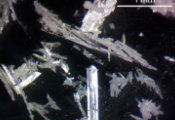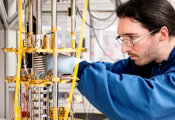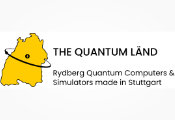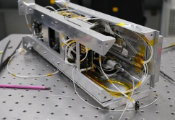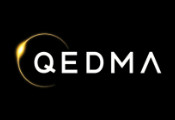Cavendish Researchers Awarded Funding to Advance Quantum Science Combined With Chemistry
July 04, 2025 -- A team of researchers at the Cavendish Laboratory, has been awarded a £500,000 Research and Innovation’s Engineering and Physical Sciences Research Council (EPSRC) grant, plus corresponding support from the U.S. National Science Foundation, to show evidence of quantum entanglement in molecules.
The researchers will collaborate with the University of California San Diego (UCSD), which has also been awarded a $600,000 grant, as part of a three-year joint partnership for their project, ‘Nanoscale Spin Entanglement and Chemistry’, known as NanoSPINEC. The project will use the funding over three years and will be co-investigated by Cavendish researchers: Dr Rakesh Arul who is the research lead for this project; and Professor Jeremy Baumberg, Dr Dorian Gangloff, and Professor Akshay Rao, as co-Principal Investigators.
“The grant is a chance to bring a strongly interdisciplinary collaboration between quantum science and chemistry and discover interesting new phenomena at the interface,” said Dr Rakesh Arul, Research Fellow, Cavendish Laboratory.
“It’s a chance to build a new team of investigators working at the frontier of quantum science and engineering.”
Molecules hold huge promise for quantum technologies but poor control at the single-molecule level has hindered progress. The researchers will develop new technologies to precisely manipulate molecular quantum behaviour, paving the way for room-temperature quantum sensors in biomedicine and enabling new fundamental discoveries.
NanoSPINEC aims to control quantum behaviour in single molecules at room temperature using tiny light-based devices called nanocavities. These will allow the researchers to manipulate electron spins, the fundamental units of quantum information.
“These spins are like little quantum magnets, like bits in a computer – but have quantum characteristics,” explained Dr Arul.
“We aim to study how molecules share quantum entanglement, a mysterious link with interesting non-trivial correlations between particles, even at a distance.”
To do that, the team will need to demonstrate the first quantum Bell test in a chemical system, showing evidence of entanglement in molecules. A quantum Bell test measures whether particles can influence each other instantly, even when far apart, something that would be impossible in classical physics.
This breakthrough would link chemistry and quantum physics, testing current theories in how entanglement works and how systems can remain a good quantum resource at room temperature.
“Showing that entanglement is a fundamental component of many chemical reactions and doing so using our modern tools within quantum information science, would open up major opportunities for controlling reactions at the quantum level but also for using chemical systems for quantum computing,” said Dr Dorian Gangloff, Associate Professor of Quantum Technology at the Cavendish Laboratory and co-Principal Investigator.
EPSRC provides grants to world-leading UK research groups tackling significant research challenges. The NanoSPINEC project is one of up to four UK-US research partnerships to be awarded funding to exploit quantum information science concepts in chemistry.
The Cambridge team will be working with co-PI Professor Joel Yuen-Zhou in San Diego.


